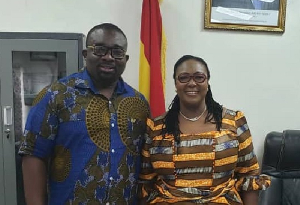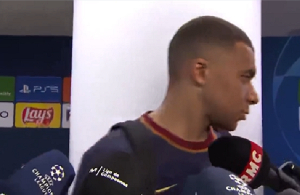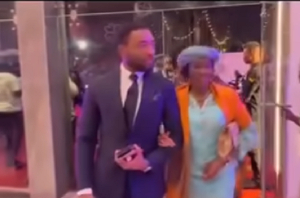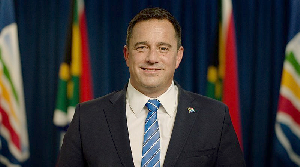Opinions of Tuesday, 27 June 2023
Columnist: Evans Mawunyo Tsikata
Is there any hope for the hopeless?
After the right to life, education is the most important right of a child. It becomes crucial when adequate actions are taken to ensure that the right to education is universal, accessible, and affordable. Every parent wishes for their child to be enrolled in the best schools, with all of the necessary amenities. However, in most African countries, including Ghana, this is not always the case.
A child is defined as a person under the age of eighteen (18) under the majority of International Human Rights Instruments, such as the United Nations Convention on the Rights of the Child (CRC) and the African Charter on the Rights and Welfare of the Child. Section 1 of Children's Act of 1998 and the 1992 Republican Constitution of Ghana define a child as a human being under the age of eighteen (18), bringing Ghana into compliance with the Convention on the Rights of the Child and the African Charter on the Rights and Welfare of the Child.
Children, regardless of their origin, need to be protected and treated equally. This does not appear to be the situation in Ghana. Duty-bearers believed they may favor students attending public basic schools over those attending private basic schools. For students in public schools, the government pays 100% of the BECE registration fees, whereas students in private basic schools must pay 100% of those fees. The government does not provide instructional materials to private schools or students. Parents of kids at both public and private schools pay taxes, yet youngsters in private schools appear to be left out of the country's prosperity.
Presidential honors, which previously covered all Ghanaian basic schools, now expressly exclude all private schools. A child with nine ones from a private school, for example, will be overlooked in comparison to his public school counterpart with a considerably lower grade. Aren't these kids Ghanaians as well?
This practice is against Article 25 of the 1992 Constitution which states that:
A person shall not be discriminated against on grounds of gender, race, colour, ethnic origin, religion, creed or social or economic status.
Despite the expanding number of children enrolling in low-cost private schools across the country, the government continues to underfund and underserve such educational institutions. According to GNACOPS, numerous of its members are being forced to sell their schools due to a lack of funding. Private schools are being treated unfairly in the allocation of funds for businesses affected by the COVID 19 pandemic, which they wanted.
Parents whose children attend private schools do not receive a tax rebate since they do not send their children to public schools, thus they are actually assisting the government. They also save the government billions of money by diverting the expenditures of thousands of children's education away from the state in the first place.
Due to limited resources and facilities, private schools, particularly those in rural locations, frequently struggle to provide a diverse choice of extracurricular activities. This can deprive youngsters of the opportunity to pursue their passions, develop their talents, and grow holistically. As a result, if the government makes an effort to treat their colleagues in public schools fairly, it will be considered government discrimination.
If the government continues to act in this manner, growth in private schools may be hampered, as all pupils should be treated equally. As provided in Article 38 (1) of the 1992 which states that:
The State shall provide educational facilities at all levels and in all the Regions of Ghana, and shall, to the greatest extent feasible, make those facilities available to all citizens.
If the government is unable to support private basic schools due to financial constraints, she should not give their public counterparts preferential treatment by placing them in Senior High Schools. For example, a child with an aggregate of 24 from a public school will be placed in a first preference, however a child with an aggregate of 11 from a private school may not be placed in the same school with the same program choice. What offense have these innocent children committed to be treated so unfairly? Who will speak up for these children? Is there any hope for the despondent?
Kofi Asare, Executive Director of Africa Education Watch, advocated that the government omit private JHS pupils from the Free SHS program in order to reduce the current costs incurred as a result of the policy. That was an extremely discriminatory idea that completely discriminated against children from private basic schools. Such behavior is prohibited by Section 8 of the Children's Act of 1998. The bulk of Ghana's private basic schools have such low tuition. Nonetheless, parents are fighting tooth and nail to keep their children in these facilities.
Many parents send their children to private schools not only for academic reasons, but also because private schools are safer than public schools. If your local public school is overcrowded and/or has a high number of children with behavioral issues, and you can at least sacrifice to keep your child out of that setting, it's well worth it. Non-state or private schools enroll nearly one in every three students in Ghana, with non-state schools enrolling more than 40% of school-age students.
In summary, treating children equally is critical for promoting a just and inclusive society; it benefits children, society as a whole, and lays the groundwork for a brighter future. It teaches children important values such as empathy, kindness, and respect for others; it fosters a sense of societal responsibility; and it encourages children to speak out against discrimination and injustice.













